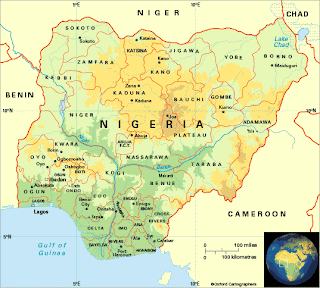

Despite assurances from government and some experts that the current global recession presents a huge opportunity for Nigeria to diversify its economy and quickly move it from being a natural wealth to a wealth-producing economy, indications have emerged that the country could become a failed state if it fails to take advantage of this opening.
Sharing his thoughts in the country’s largest business center, Lagos with a group of journalists who was attending a regional training on business and financial reporting in Lagos, Managing Director, Financial Derivatives Company Limited, Mr. Bismarck Rewane, observed that if Nigeria fails to take advantage of this global development, it’s economic strength might depreciate further worse than anything it had ever seen.
Rewane, an economic expert who sits on the presidential committee on the global crisis, board of Guinness Nigeria, and part of the team on the reform of Nigeria's stock exchange, stressed that Nigeria was not in a recession, but rather, witnessing a slowing growth.
He shares the recent thoughts of Vice President Goodluck Jonathan and that of the Managing Director of the World Bank, Dr. Ngozi Okonjo Iweala, that Nigeria could become a strong resilient economy if it took advantage of the situation.
Pointing out that Nigeria's economy was already in crisis before the emergence of the global crisis, he added: "It is necessary to use this golden opportunity to achieve an accelerated and sustainable rate of real economic growth and diversify the economy away from overdependence on oil and gas both from a fiscal and foreign exchange earnings perspectives. The global crisis is passing over. Oil prices are going up again.
"If we relax and fail to take advantage of this situation, we may never recover our economy. In fact, we will become a failed state," he submitted.
He was also quick to point out: "In the last eight to 10 weeks, the price of Bonny light has stayed steadily above $60 per barrel. The benchmark for policy easing and reform without adulteration is approximately $55per barrel. The production hiccups due to unrest poses a revenue problem."
The reality, according to him was: "Politicians will have their say but the markets will have their way."
Enumerating the role of journalists in ensuring economic transparency and accountability, he charged them to "take the bull by the horn" and truly become catalysts of debate, "by setting the agenda."
The training was put together by Thompson Foundation and The Investment Climate Facility for Africa to sharpen the skills of journalists on the business and finance beat.
50113
|